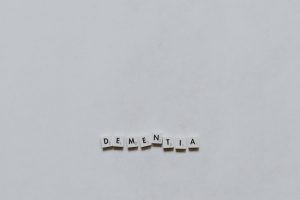
By Kimberly Davis,
The Atlanta Voice
Caring for a loved one who has Alzheimer’s disease can be a daunting proposition. With African Americans disproportionately affected by the disease, education and planning are essential.
Alzheimer’s disease is the most common type of dementia, a neurocognitive disorder that involves the segments of the brain that control thought, memory, and language, according to the Centers for Disease Control and Prevention. It is the seventh leading cause of death among adults in the United States and the fifth leading cause of death among adults aged 65 and older.
The statistics are even more daunting for African Americans, who have the highest prevalence of Alzheimer’s and related dementias of any population at 13.8 percent. Dr. Monica W. Parker says that’s to be expected.
“Like a lot of other chronic illnesses, we come to the provider late in the game to get an evaluation,” says Parker, the director of both the Outreach, Recruitment and Education and Minority Engagement Cores at Emory University’s Goizueta Alzheimer’s Disease Research Center. “And by the time we get a confirmed diagnosis, whatever it is that has caused what we have has melded into something else. Most people who have been diagnosed with a dementia disorder in the African American community have had ongoing symptoms for some time.”
The primary risk factors for Alzheimer’s are age, gender and lifestyle, according to Parker, who took part in the recent free Alzheimer’s Educational Conference at Emory University. Sponsored by the Alzheimer’s Foundation of America, the purpose of the half-day conference was to help participants learn from experts in the field of Alzheimer’s disease, caregiving and brain health.
Research shows that there are also risk factors for dementia that can potentially be modified or controlled: lower level of education, hypertension, hearing loss, smoking, obesity, depression, physical inactivity, diabetes and low social contact. In 2020, The Lancet Commission added excessive alcohol consumption, traumatic brain injury, and air pollution as risk factors.
“We are learning that 60 percent of all dementias can be prevented if we manage our lives a little bit better,” says Parker, a geriatric medicine specialist. “From the research perspective, we can’t do very much about our gender or genes that we inherited — we really are not able to control how long we live. But we can manage our diet, we can manage social contact and eliminate social isolation … We can manage and control chronic diseases and illnesses that are poorly managed.”
According to Parker, getting an evaluation for Alzheimer’s disease or other dementias is a “process” that should begin with a primary care provider. A trusted loved one should also make the visit to the doctor’s office so that they can share concerns and observations. The primary care physician can also examine medical history, make sure medications are being taken correctly and that there are no undiagnosed illnesses or problems that need to be addressed.
Then, a brain MRI should be ordered to get a baseline. Following that, a primary doctor should make a referral to a neuropsychologist, who will do “learning testing” to determine how well the brain is working in terms of judgment, reasoning, memory and problem-solving. Following that evaluation, one may be referred to a neurologist. Experts say everyone — the potential patient, physicians, specialists, and the caregiver must come together to decide on the best course of action.
“The most important thing when you are working with somebody with Alzheimer’s is making sure they’re in a safe, secured environment. Sometimes, that means people can’t live independently anymore,” Parker says.
“For anybody who is concerned about a family member or themselves who may have a problem with how they’re thinking and processing information, get to see a doctor. If you’re a caregiver for somebody who is affected, get yourself trained to be a good caregiver. Learn more about the disease process and what to expect.”
This article, Disparities in diagnosis, treatment for African Americans with Alzheimer’s, was originally published by The Atlanta Voice.
The post Disparities in diagnosis, treatment for African Americans with Alzheimer’s appeared first on AFRO American Newspapers .











